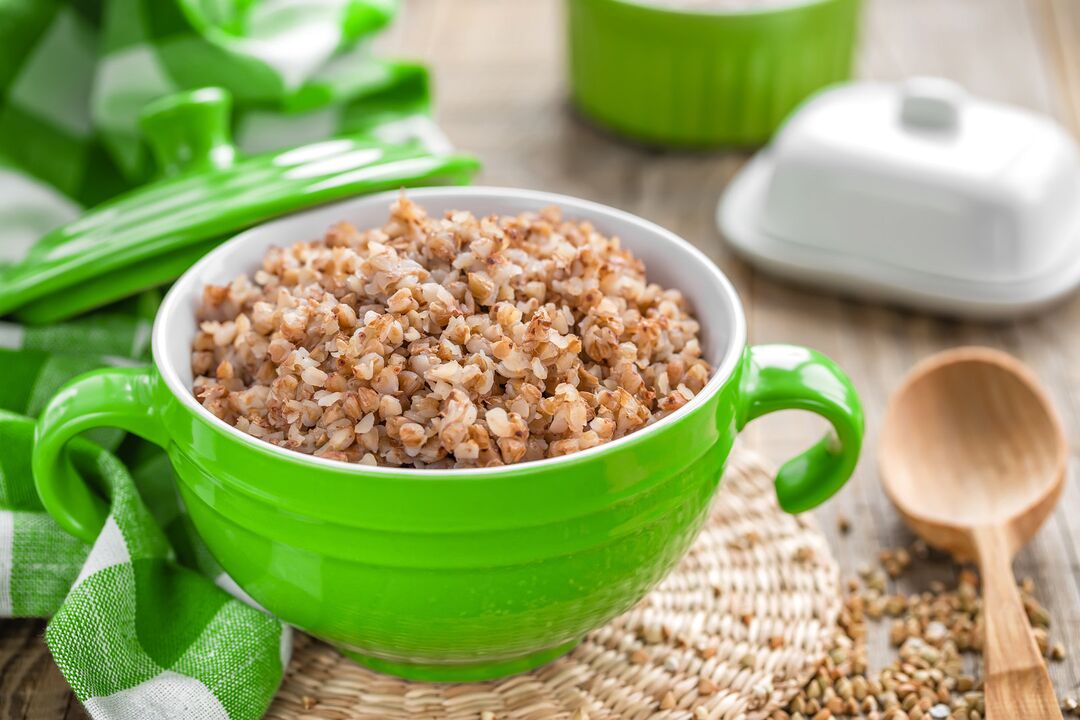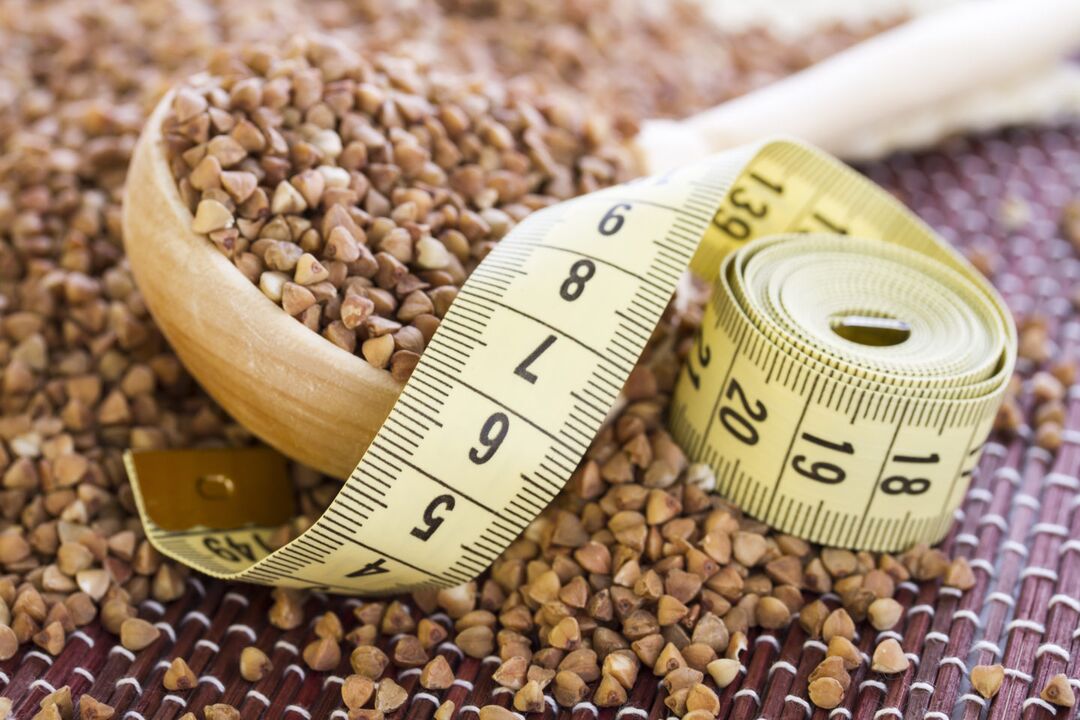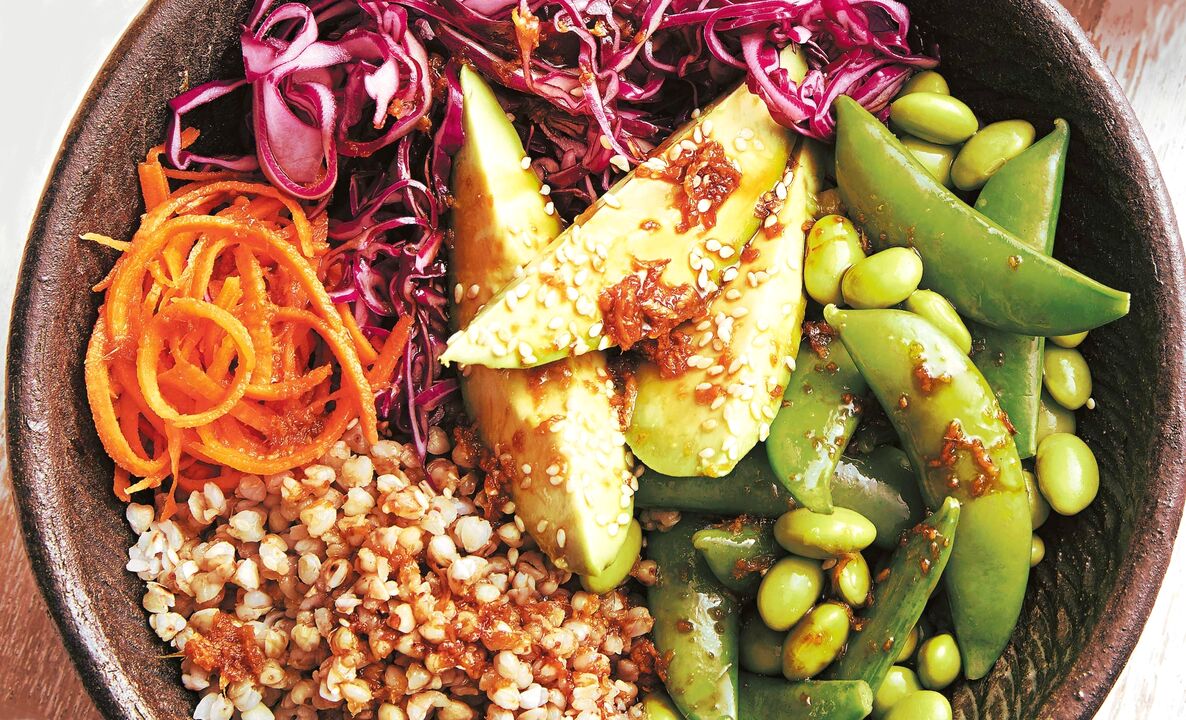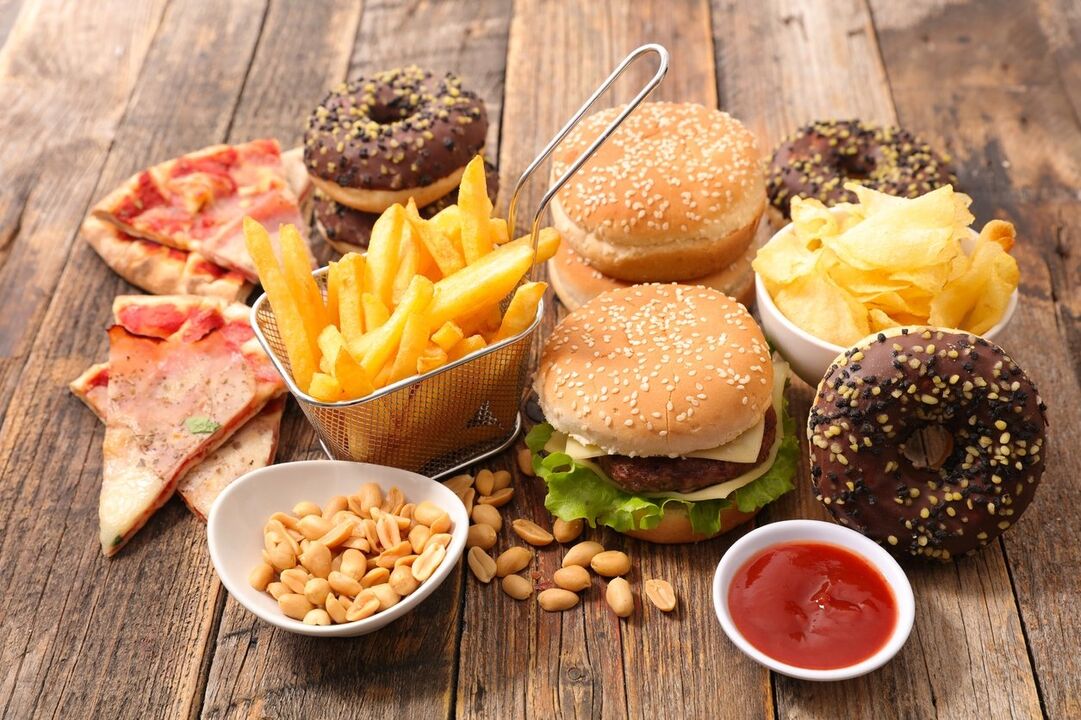Buckwheat diet for quick weight loss (from 3 to 14 days) is an inexpensive, simple and effective method of getting rid of excess body fat and extra centimeters in the waist area.Diet with buckwheat for weight loss can be based on eating only this product or on its combination with the most different food ingredients, as a result of which is suitable for both men and women.
General rules
The effectiveness of the process of losing weight diets based on buckwheat is primarily achieved due to the useful properties of this cereal, as well as due to the absence of the so -called “quick carbohydrates” in the food diet.Put in such conditions, the human organism to replenish the energy necessary for it is forced to borrow its stocks from existing adipose tissues, while quite fully obtaining from the main dietary product the most important for their vital activity of the substance.
Recommendations for compliance with a particular buckwheat diet are often given not only by nutritionists, but also doctors who highly appreciate the purification efficiency of buckwheat cereal in relation to the gastrointestinal tract, which is useful in order to prevent many severe painful conditions, for example, psoriasis, arthritis and even oncological pathologies.
Beneficial properties of buckwheat

A sufficiently large amount of insoluble fiber in this cereal contributes to the rapid physiological excretion from the intestines of various kinds of toxins and toxins, which further favors getting rid of “poor cholesterol”, excess sugar and other negative substances.In addition, buckwheat helps to cope with existing constipation, prevents the occurrence of calculi in the gall bladder and kidneys, prevents the development of atherosclerosis and various pathologies of the liver and heart.
Buckwheat is rich in flavonoids, including routine, which shows a pronounced bactericidal, anti -inflammatory and antioxidant effect in relation to the entire human body.It is thanks to flavonoids and purification effects of buckwheat that some doctors note its positive influence in terms of prevention of cancer formation.In addition, flavonoids help strengthen blood vessels and increase their elasticity, has a beneficial effect on the functioning of the heart muscle and thyroid gland.
Rutin is used from this cereal in the production of drugs recommended for the treatment of rheumatism, hemorrhoids, arthritis, varicose veins and other sufficiently serious pathologies.Thus, the inclusion of buckwheat in the diet to some extent prevents the development or exacerbation of many painful conditions.
Group B vitamins, because of which buckwheat is appreciated, actively participate in the exchange of BJU (proteins/fats/carbohydrates) and redox processes, contribute to the right visual perception, and gracefully affect the condition of mucous membranes and skin.Some of these vitamins regulate the concentration of plasma cholesterol, contributes to the synthesis of hemoglobin and a number of important hormones, promotes sugar and amino acids absorption in the intestines, supports the adrenal functionality, and the normal activity of the nervous system.
Due to the significant content of magnesium, buckwheat cereals acts as a stabilizer of cell membranes and a blood pressure regulator, which is especially useful for people suffering from hypertension.Without this macroelent, the full flow of energy metabolism, the synthesis of nucleic acids and proteins, sodium, potassium and calcium is synthesis.Magnesium also actively prevents atherosclerosis.
Iron, which is included in the structure of proteins of different purposes, including enzymes, is involved in the transportation of oxygen and electrons, ensures the activation of the peroxidation of oxidation and the naturalness of redox processes.
The use of buckwheat can fully provide the human body with phosphorus, which serves as a catalyst for many physiological processes, starting with the adjustment of acid-base balance and ending with energy metabolism.Also, phosphorus is an indispensable component of nucleotides, phospholipids and nucleic acids necessary for the bone system for adequate mineralization.The consumption of a sufficient amount of this macro element prevents the occurrence of various bone pathologies.
Along with phosphorus, the manganese also participates in the formation of bone and also connective tissues.Building in the composition of enzymes, participates in the metabolic transformation of amino acids, catecholamines and carbohydrates, the element is required for the synthesis of nucleotides and cholesterol.
Zinc is present in many enzymes, contributes to the processes of replication and transformation of nucleic acids, BJU, as well as in the regulation of the expression of a number of genes.Its consumption prevents the appearance of anemia, cirrhosis of the liver, secondary immunodeficiency, sexual dysfunction and the development of various malformations in the fetus.
Selenium is an essential component of the protective antioxidant system of the human body, is involved in the adjustment of the work of thyroid hormones and shows an immunomodulating effect.
Copper, which is literally saturated with buckwheat, as part of certain enzymes, demonstrates oxidative and restorative activity, is involved in the metabolic transformation of iron and in the process of oxygen saturation of tissues, activates the absorption of carbohydrates and proteins.It is beneficial for the state of connective tissues, cardiovascular and skeletal systems.
Buckwheat is a popular product for losing weight and other parts of the body, most susceptible to fat deposits, because, despite its rather significant nutritional value (343 kcal/100 g), has a small glycemic index.
This indicator of boiled cereal varies within 40-50, which allows it to actively help reduce body weight, through a long process of splitting “slow carbohydrates” and cleansing the body from poor cholesterol and excess sugar.That is why the instructions for the buckwheat diet are posted on almost all sites devoted to dietetics, and the question of whether buckwheat can be eaten in a positive direction.
Varieties

Due to the fairly wide popularity of buckwheat, among many people from different countries, many varieties of dietary regimes were created on its basis, among which you can easily choose the most suitable for yourself both in terms of duration and in the diet.Below are described in detail several main options for a buckwheat with buckwheat, on the basis of which other versions of a similar method of losing weight were developed, as well as the questions: how to “sit” and how long you can “sit” on a buckwheat diet;how to lose weight and how much you can lose extra pounds subject to a particular power regime;How much buckwheat can eat on a buckwheat diet and whether you can eat fruits, vegetables and other concomitant products;Whether the weight is returned after the end of the diet and how to leave it correctly to consolidate the effect of losing weight.
Buckwheat mono -diet for 3 days
The classic version of the diet with eating only waned according to the above recipe of buckwheat and purified water.Many nutritionists consider this type of buckwheat diet the only correct one, combining adequate effectiveness of losing weight along with minimal risks for the general state of health.They do not recommend exceeding the duration of the monodite limited to three days, and in case of determination to continue losing weight, advise to choose for themselves a more balanced menu with other food products to buckwheat.
Buckwheat diet for 5 days
A very popular type of diet on buckwheat porridge and kefir, designed for 5 days and allowing both a separate technique of these products and insisting cereals on a low -fat sour -milk product.It is believed that the positive results of this technique are manifested not only in terms of combating excess weight, but also in the part of deep intestinal cleaning.
In this tandem of products, the steamed buckwheat physiologically removes previously accumulated toxic deposits and toxins from the intestinal walls, and kefir provides their rapid excretion.According to some reviews, the buckwheat-kefir dietary diet has a beneficial effect on further digestion processes, raises tone, improves the condition of the skin and normalizes the functioning of the nervous system.Quite often, they try to observe this version of the buckwheat with buckwheat for a longer time (7 and even 10 days), but due to the inclusion of only two products in the nutritional diet, nutritionists do not recommend exceeding the established temporary limit of 5 days.
Buckwheat diet for 7 days
There are two main weekly types of dietary diet with buckwheat, reviews of which also position them as fairly effective methods of losing weight.
The first of them is quite strict and is an already known buckwheat-kefir version of the menu for 7 days, complemented only by green apples and/or dried fruits (raisins, dried apricots, prunes) designed to replenish fructose deficiency and slightly diversify the taste nutrient characteristics.
The second bunch diet recipe for a week is a lightweight variety of classical dietary nutrition and allows the use of not only steamed porridge, but also various related products (mainly dairy, fruits and/or vegetables), the assortment of which can be selected independently, consistent with their own preferences in food.
Buckwheat diet for 14 days
The two -week version of the buckwheat diet is the longest and therefore the most diverse in relation to the foods used.In addition to buckwheat porridge, vegetables/fruits and dairy products, the menu in the menu for 2 weeks also introduces protein food of animal origin, which helps to balance nutrients entering the body.In this case, preference should be given to low -fat fish, eggs, as well as chicken or turkey fillet.
Of course, the effectiveness of losing weight of this diet will be slightly lower in comparison with the effect of more stringent diets, but the chances of causing harm to your own health are practically reduced to zero.With the right selection of products of a daily menu that allow you to receive all substances necessary for the human body with food, it is permissible to extend such a diet for a month and even more.
How many kilograms can you lose?
For most people who choose a way of getting rid of extra kilograms of weight, the issues are primarily how much you can lose weight at the end of this or that diet and how many days you need to observe a diet to achieve the optimal result.
In the case of choosing a buckwheat, taking into account the rich carbohydrate composition of cereals, you should prepare for the fact that it will not be immediately possible to throw off excess weight, especially those whose body weight has not gone from the indications of the norm.How quickly it begins to leave overweight largely depends on its initial indicator.For example, fat people with a high excess of the weight norm can quite really lose 10 kg per week of a lightweight version of the buckwheat diet, but to those who want to get rid of just a few extra pounds, it is better to adhere to more stringent diet modes.
On average, a three-day mono dot on buckwheat can take 2-3 kg of excessive weight, and its 5-daily variety can save the body from 3-4 kg.A weekly dietary diet on buckwheat porridge is able to reduce the mass by 5-6 kg, and a 14-day diet per 10 kg.
Allowed products
Table of permitted products

| Squirrels, g | Fats, g | Carbohydrates, g | Calories, kcal | |
Vegetables and herbs |
||||
| eggplant | 1.2 | 0.1 | 4.5 | 24 |
| Zucchini | 0.6 | 0.3 | 4.6 | 24 |
| cabbage | 1.8 | 0.1 | 4.7 | 27 |
| Onions are onion | 1.4 | 0.0 | 10.4 | 41 |
| carrot | 1.3 | 0.1 | 6.9 | 32 |
| Cucumbers | 0.8 | 0.1 | 2.8 | 15 |
| Patissons | 0.6 | 0.1 | 4.3 | 19 |
| parsley | 3.7 | 0.4 | 7.6 | 47 |
| salad | 1.2 | 0.3 | 1.3 | 12 |
| celery | 0.9 | 0.1 | 2.1 | 12 |
| tomatoes | 0.6 | 0.2 | 4.2 | 20 |
| dill | 2.5 | 0.5 | 6.3 | 38 |
Fruits |
||||
| Pineapples | 0.4 | 0.2 | 10.6 | 49 |
| Oranges | 0.9 | 0.2 | 8.1 | 36 |
| grapefruit | 0.7 | 0.2 | 6.5 | 29 |
| Pear | 0.4 | 0.3 | 10.9 | 42 |
| Lemons | 0.9 | 0.1 | 3.0 | 16 |
| apples | 0.4 | 0.4 | 9.8 | 47 |
Mushrooms |
||||
| Champignons are fresh | 4.3 | 1.0 | 1.0 | 27 |
Nuts and dried fruits |
||||
| Walnuts | 15.2 | 65.2 | 7.0 | 654 |
| raisin | 2.9 | 0.6 | 66.0 | 264 |
| dried apricots | 5.2 | 0.3 | 51.0 | 215 |
| prunes | 2.3 | 0.7 | 57.5 | 231 |
Cereals and porridge |
||||
| buckwheat porridge of cereal nucleus | 3.0 | 3.4 | 14.6 | 101 |
| buckwheat cereal (nucleus) | 12.6 | 3.3 | 62.1 | 313 |
Raw materials and seasonings |
||||
| honey | 0.8 | 0.0 | 81.5 | 329 |
Dairy products |
||||
| kefir 1% | 2.8 | 1.0 | 4.0 | 40 |
| Ryazhenka 1% | 3.0 | 1.0 | 4.2 | 40 |
| Acidophilin 1% | 3.0 | 1.0 | 4.0 | 40 |
| yogurt | 4.3 | 2.0 | 6.2 | 60 |
Cheese and cottage cheese |
||||
| Mozarella cheese | 18.0 | 24.0 | 0.0 | 240 |
| Cottage cheese 0.1% | 16.7 | 0.1 | 2.0 | 76 |
Meat products |
||||
| The veal boiled | 30.7 | 0.9 | 0.0 | 131 |
| rabbit | 21.0 | 8.0 | 0.0 | 156 |
Bird |
||||
| Chicken fillet is boiled | 30.4 | 3.5 | 0.0 | 153 |
| Trucks are boiled | 25.0 | 1.0 | - | 130 |
Eggs |
||||
| Boiled chicken boiled eggs | 12.9 | 11.6 | 0.8 | 160 |
| Boiled boiled soft -boiled eggs | 12.8 | 11.6 | 0.8 | 159 |
Fish and seafood |
||||
| Boiled fish | 17.3 | 5.0 | 0.0 | 116 |
Breeding drinks |
||||
| Mineral water | 0.0 | 0.0 | 0.0 | - |
| Coffee is black | 0.2 | 0.0 | 0.3 | 2 |
| Green tea | 0.0 | 0.0 | 0.0 | - |
| * Data are indicated for 100 g of product | ||||
Fully or partially limited products
Subject to all the options for buckwheat diet, you should absolutely refuse to eat:
- other cereal cereals;
- salts and other spices and seasonings;
- sugar and other sweeteners;
- smoked, sharp and fried dishes;
- any types of sausages;
- legumes;
- fatty meat of poultry, fish and animals;
- pasta and other flour products;
- all canned food (vegetable, fish, meat, etc.);
- dairy fat products (sweet cheese, yogurts with fillers, etc.);
- sauces, ketchups, mayonnaise;
- all marinades;
- sweets (sweets, puddings, jam, cakes, etc.);
- alcoholic beverages;
- animals and culinary fats;
- factory nectars;
- sparkling water.
Table of prohibited products

| Squirrels, g | Fats, g | Carbohydrates, g | Calories, kcal | |
Vegetables and herbs |
||||
| potato | 2.0 | 0.4 | 18.1 | 80 |
Snec |
||||
| Potato chips | 5.5 | 30.0 | 53.0 | 520 |
| Popcorn Karamel | 5.3 | 8.7 | 76.1 | 401 |
| Popcorn salty | 7.3 | 13.5 | 62.7 | 407 |
Flour and pasta |
||||
| Wheat flour | 9.2 | 1.2 | 74.9 | 342 |
| Pancake flour | 10.1 | 1.8 | 69.7 | 336 |
| pasta | 10.4 | 1.1 | 69.7 | 337 |
| noodles | 12.0 | 3.7 | 60.1 | 322 |
| spaghetti | 10.4 | 1.1 | 71.5 | 344 |
| pancakes | 6.1 | 12.3 | 26.0 | 233 |
| Dumplings | 7.6 | 2.3 | 18.7 | 155 |
| pancakes | 6.3 | 7.3 | 51.4 | 294 |
| dumplings | 11.9 | 12.4 | 29.0 | 275 |
Bakery products |
||||
| Baton | 7.5 | 2.9 | 50.9 | 264 |
| Kalach | 7.9 | 0.8 | 51.6 | 249 |
| bun | 7.6 | 8.8 | 56.4 | 334 |
| bread | 7.5 | 2.1 | 46.4 | 227 |
Confectionery |
||||
| jam | 0.3 | 0.2 | 63.0 | 263 |
| jam | 0.3 | 0.1 | 56.0 | 238 |
| Sephir | 0.8 | 0.0 | 78.5 | 304 |
| candies | 4.3 | 19.8 | 67.5 | 453 |
| cookie | 7.5 | 11.8 | 74.9 | 417 |
| cake | 3.8 | 22.6 | 47.0 | 397 |
| jam | 0.4 | 0.2 | 58.6 | 233 |
| dough | 7.9 | 1.4 | 50.6 | 234 |
| halva | 11.6 | 29.7 | 54.0 | 523 |
Ice cream |
||||
| ice cream | 3.7 | 6.9 | 22.1 | 189 |
Cakes |
||||
| cake | 4.4 | 23.4 | 45.2 | 407 |
Chocolate |
||||
| chocolate | 5.4 | 35.3 | 56.5 | 544 |
Raw materials and seasonings |
||||
| ketchup | 1.8 | 1.0 | 22.2 | 93 |
| mayonnaise | 2.4 | 67.0 | 3.9 | 627 |
| sugar | 0.0 | 0.0 | 99.7 | 398 |
| salt | 0.0 | 0.0 | 0.0 | - |
Dairy products |
||||
| Milk 4.5% | 3.1 | 4.5 | 4.7 | 72 |
| Cream 35% (fat) | 2.5 | 35.0 | 3.0 | 337 |
| sour cream 40% (fat) | 2.4 | 40.0 | 2.6 | 381 |
| Fruit yogurt 3.2% | 5.0 | 3.2 | 8.5 | 85 |
Cheese and cottage cheese |
||||
| Cottage cheese 18% (fat) | 14.0 | 18.0 | 2.8 | 232 |
Meat products |
||||
| pork | 16.0 | 21.6 | 0.0 | 259 |
| salo | 2.4 | 89.0 | 0.0 | 797 |
| mutton | 15.6 | 16.3 | 0.0 | 209 |
| bacon | 23.0 | 45.0 | 0.0 | 500 |
| Cutlets | 16.6 | 20.0 | 11.8 | 282 |
| entrecote | 27.3 | 31.2 | 1.7 | 396 |
| steak | 27.8 | 29.6 | 1.7 | 384 |
Sausage products |
||||
| Boiled sausage | 13.7 | 22.8 | 0.0 | 260 |
| Sausage in/smoked | 28.2 | 27.5 | 0.0 | 360 |
| Sausage w/smoked | 16.2 | 44.6 | 0.0 | 466 |
| Sausage s/sluggish | 24.1 | 38.3 | 1.0 | 455 |
| Sausage s/smoked | 9.9 | 63.2 | 0.3 | 608 |
| Liver sausage | 14.4 | 28.5 | 2.2 | 326 |
| Shards | 10.1 | 31.6 | 1.9 | 332 |
| sausages | 12.3 | 25.3 | 0.0 | 277 |
| Spick | 10.0 | 33.0 | 0.0 | 337 |
Bird |
||||
| The chicken is smoked | 27.5 | 8.2 | 0.0 | 184 |
| Chicken wings smoked | 29.9 | 19.5 | 0.0 | 290 |
| The duck is smoked | 19.0 | 28.4 | 0.0 | 337 |
Fish and seafood |
||||
| The fish is sluggish | 17.5 | 4.6 | 0.0 | 139 |
| The fish is smoked | 26.8 | 9.9 | 0.0 | 196 |
| Salt fish | 19.2 | 2.0 | 0.0 | 190 |
Oils and fats |
||||
| Vegetable oil | 0.0 | 99.0 | 0.0 | 899 |
| Cream oil | 0.5 | 82.5 | 0.8 | 748 |
| Fat animal | 0.0 | 99.7 | 0.0 | 897 |
| Culinary fat | 0.0 | 99.7 | 0.0 | 897 |
Alcoholic drinks |
||||
| brandy | 0.0 | 0.0 | 0.5 | 225 |
| whiskey | 0.0 | 0.0 | 0.4 | 235 |
| vodka | 0.0 | 0.0 | 0.1 | 235 |
| cognac | 0.0 | 0.0 | 0.1 | 239 |
| liquor | 0.3 | 1.1 | 17.2 | 242 |
| beer | 0.3 | 0.0 | 4.6 | 42 |
| port | 0.4 | 0.0 | 12.0 | 163 |
| champagne | 0.2 | 0.0 | 5.0 | 88 |
Breeding drinks |
||||
| Cola | 0.0 | 0.0 | 10.4 | 42 |
| lemonade | 0.0 | 0.0 | 6.4 | 26 |
| Mirinda | 0.0 | 0.0 | 7.5 | 31 |
| Pepsi | 0.0 | 0.0 | 8.7 | 38 |
| Fant | 0.0 | 0.0 | 11.7 | 48 |
| * Data are indicated for 100 g of product | ||||













































































